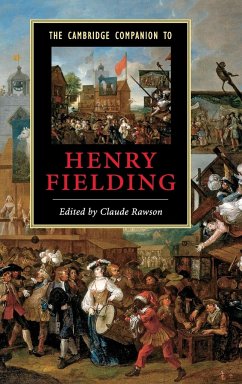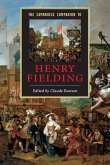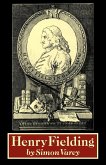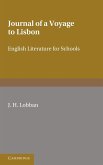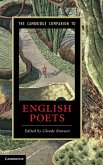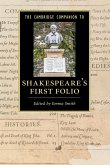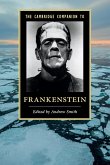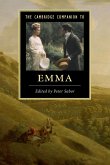A comprehensive account of the life and work of this key eighteenth-century literary figure.
Now best known for three great novels - Tom Jones, Joseph Andrews and Amelia - Henry Fielding (1707(?)1;1754) was one of the most controversial figures of his time. Prominent first as a playwright, then as a novelist and political journalist, and finally as a justice of peace, Fielding made a substantial contribution to eighteenth-century culture, and was hugely influential in the development of the novel as a form, both in Britain and more widely in Europe. This collection of specially-commissioned essays by leading scholars describes and analyses the many facets of Fielding's work in theatre, fiction, journalism and politics. In addition it assesses his unique contribution to the rise of the novel as the dominant literary form, the development of the law, and the political and literary culture of eighteenth-century Britain. Including a Chronology and Guide to Further Reading, this volume offers a comprehensive account of Fielding's life and work.
Table of contents:
Chronology; Introduction Claude Rawson; 1. Henry Fielding's life Linda Bree; 2. Fielding's theatrical career Thomas Keymer; 3. Shamela Thomas Lockwood; 4. Joseph Andrews Paul Baines; 5. Jonathan Wild Jenny Davidson; 6. Tom Jones Nicholas Hudson; 7. Amelia Peter Sabor; 8. Fielding's periodical journalism Bertrand A. Goldgar; 9. Fielding and female authority Jane Spencer; 10. Fielding on society, crime and the law Pat Rogers; 11. Fielding's style Claude Rawson; 12. Fielding's afterlife Charles Knight; Guide to further reading.
Now best known for three great novels - Tom Jones, Joseph Andrews and Amelia - Henry Fielding (1707(?)1;1754) was one of the most controversial figures of his time. Prominent first as a playwright, then as a novelist and political journalist, and finally as a justice of peace, Fielding made a substantial contribution to eighteenth-century culture, and was hugely influential in the development of the novel as a form, both in Britain and more widely in Europe. This collection of specially-commissioned essays by leading scholars describes and analyses the many facets of Fielding's work in theatre, fiction, journalism and politics. In addition it assesses his unique contribution to the rise of the novel as the dominant literary form, the development of the law, and the political and literary culture of eighteenth-century Britain. Including a Chronology and Guide to Further Reading, this volume offers a comprehensive account of Fielding's life and work.
Table of contents:
Chronology; Introduction Claude Rawson; 1. Henry Fielding's life Linda Bree; 2. Fielding's theatrical career Thomas Keymer; 3. Shamela Thomas Lockwood; 4. Joseph Andrews Paul Baines; 5. Jonathan Wild Jenny Davidson; 6. Tom Jones Nicholas Hudson; 7. Amelia Peter Sabor; 8. Fielding's periodical journalism Bertrand A. Goldgar; 9. Fielding and female authority Jane Spencer; 10. Fielding on society, crime and the law Pat Rogers; 11. Fielding's style Claude Rawson; 12. Fielding's afterlife Charles Knight; Guide to further reading.

